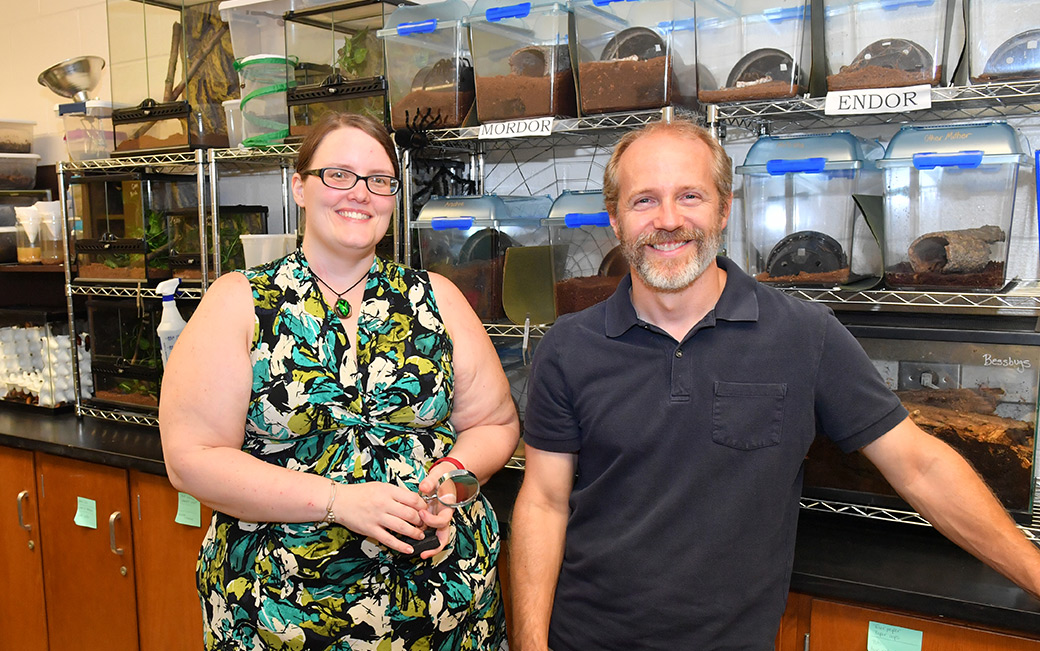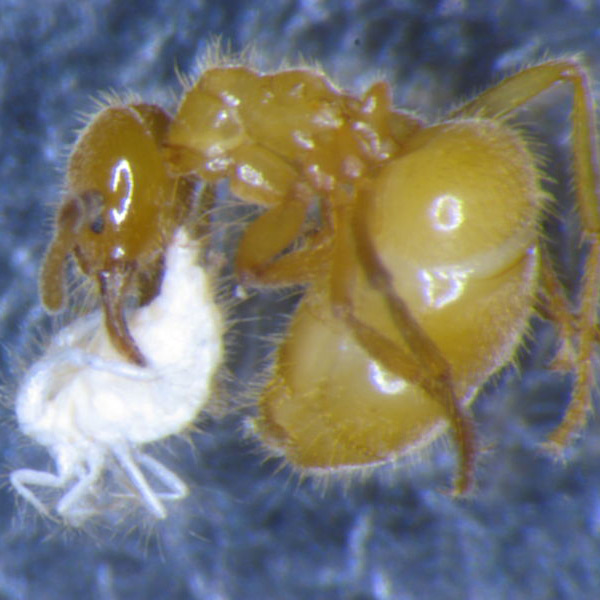TU receives big grant to study pair of small insects
Towson University professors receive over $730,000 from National Science Foundation
By Megan Bradshaw on Sept. 16, 2018

John LaPolla and Faith Weeks, biological sciences professors in Towson University’s Fisher College of Science and Mathematics, have received over $730,000 from the National Science Foundation (NSF) to create a project that combines authentic research with in-classroom application of the results.
LaPolla’s research will flow into Weeks’ course development, forming a symbiotic relationship much like the two groups of insects they are focused on.
On the research side, LaPolla, graduate student Aaron Robinson and undergraduate student Paul Umemezie will study the facets of the symbiotic relationship between Acropyga ants and mealy bugs. TU alum and USDA research entomologist Scott Schneider ’10 and Sean Brady, chair of the Department of Entomology at the Smithsonian Institution National Museum of History, are co-investigators on the project.
“The ants essentially use the mealybugs as dairy cows,” LaPolla explained. “As a byproduct of their own eating, mealybugs secrete a substance called honeydew that nourishes the ants. These Acropyga ants are always found living with mealy bugs, and the group of mealybugs that is with the ants are only ever found with the ants.”

Acropyga queens will even take a mealybug with them when they go off to start a new ant colony, an act LaPolla calls “really unusual.”
“The carrying of mealybugs also demonstrates a very close association between the two partners, which may have had an impact on the evolutionary trajectories of each insect group,” LaPolla said.
A big part of the grant is to look at whether the Acropyga ants and mealybugs have co-speciated over millions of years. The research team will travel to field sites around the world—potentially Costa Rica, Peru, Gabon and Borneo—to sample ants and mealybugs for molecular sequencing, with other projects spinning out of that.
LaPolla expects to uncover new species of ants and mealybugs. In fact, Umemezie was involved in the description of three new Acropyga species from Africa this past spring. Specimens collected will ultimately be stored in the Smithsonian Institution National Museum of History.
Weeks is a tenure-track science education professor who studies using live insects as an active learning technique in K–12 classrooms.
“I study human reactions to ‘bugs’ and how that changes with prolonged exposure and increased knowledge about them,” she said. “I’ve found using a variety of insects as teaching tools helps our students become more comfortable using them in their work.”
Weeks’ component of the grant comprises the foundation of an undergraduate course in which pre-service education majors undertake laboratory research with LaPolla before creating lesson plans based on their results. Weeks is also creating summer workshops for current middle and high school teachers who can then take what they’ve learned back to their classrooms.
The first phase of the project is planning course curricula and materials, getting approvals and advertising to in-service teachers. Workshops will be held during the summers from 2019–21; the undergraduate course will be offered in fall 2019 and fall 2020.
This story is one of several related to President Kim Schatzel’s priorities for Towson
University: TU Matters to Maryland.